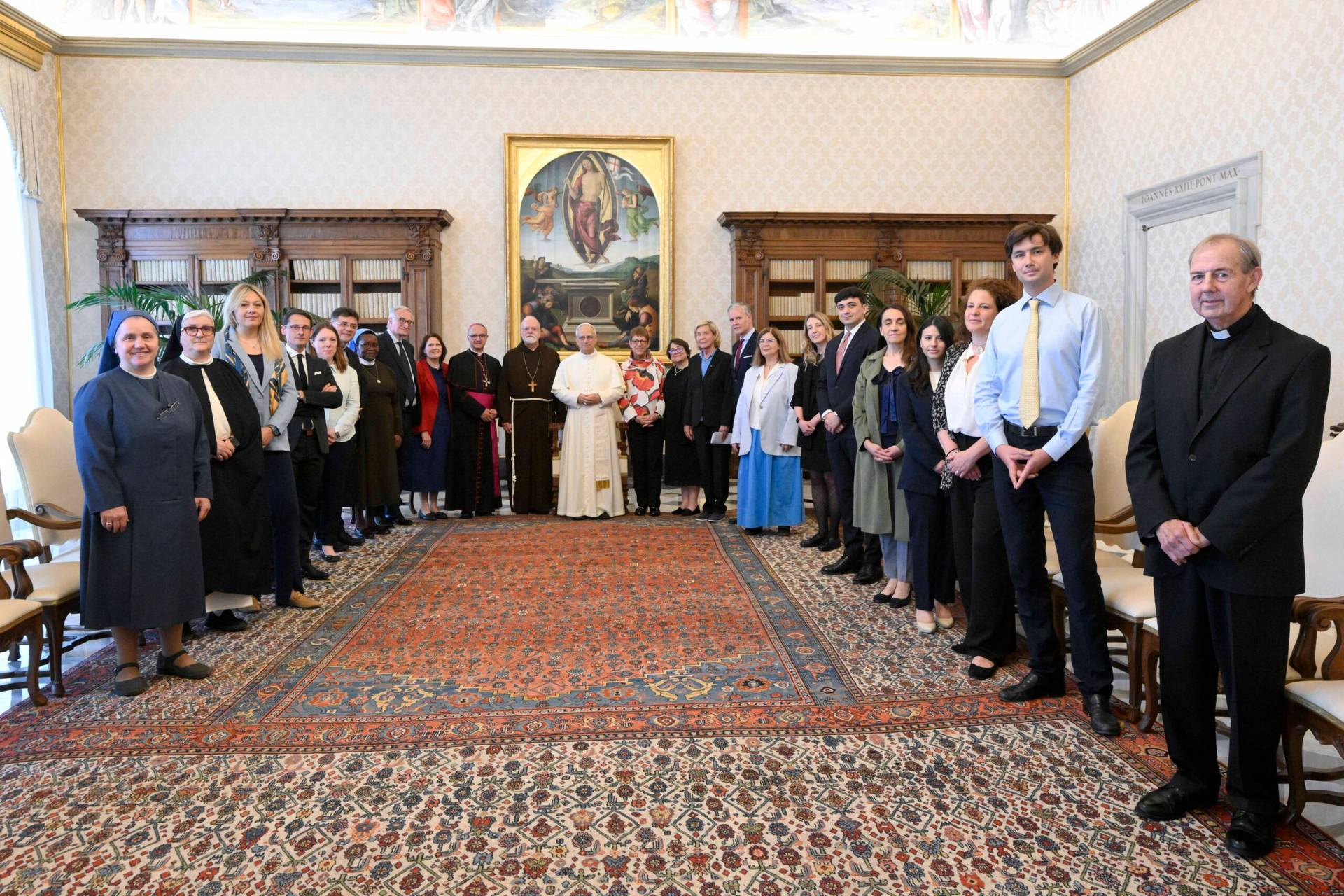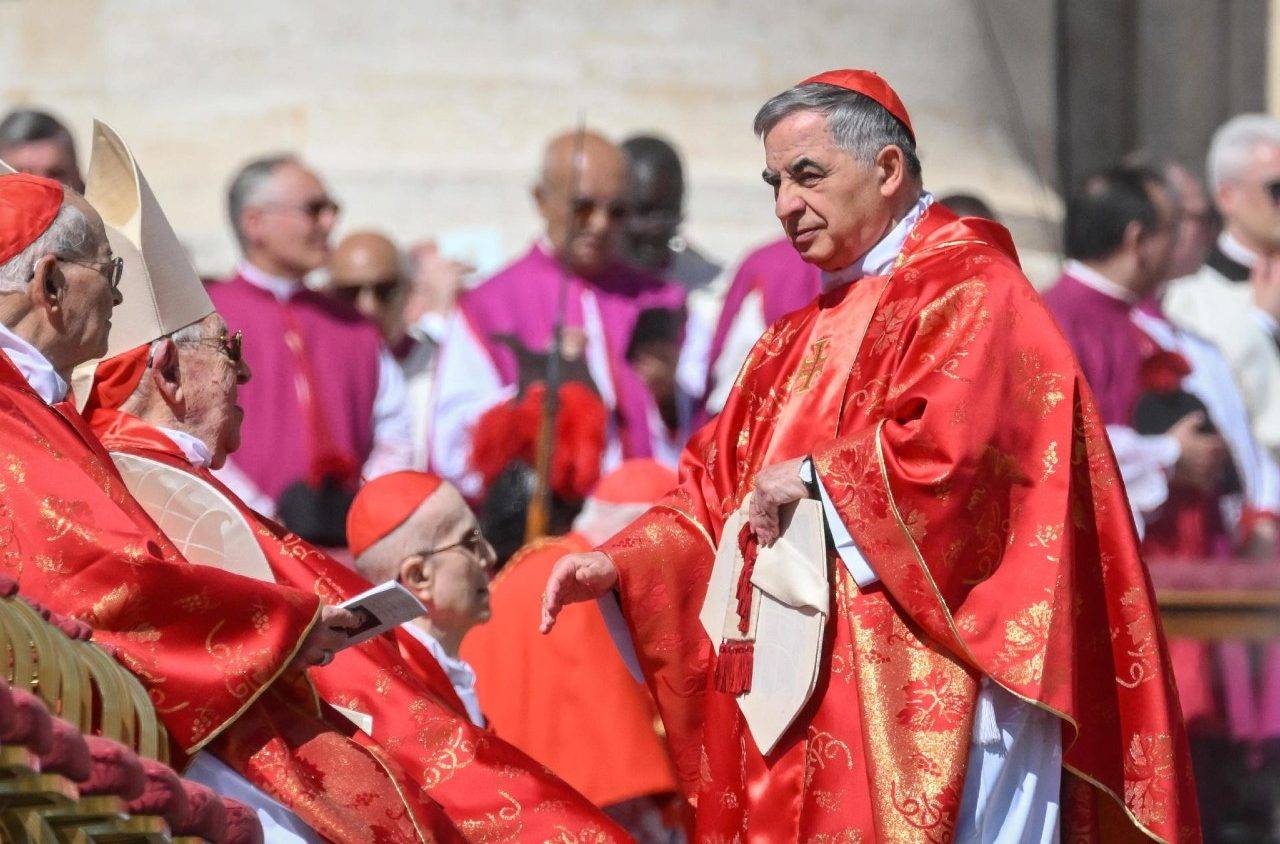Rome – In hunting, a “stalking horse” is a screen in the shape of a horse or some other animal that someone hides behind to disguise themselves from their prey. It’s a similar concept in politics, when you go after one target but your real intent is to strike another.
We got a perfect illustration recently when two U.S. senators objected to the nomination of Brian Buescher for the U.S. district court in Nebraska on the grounds that he’s a member of the Knights of Columbus.
According to Senators Mazie Hirono of Hawaii and Kamala Harris of California, both Democrats, the Knights’ positions on abortion and same-sex marriage could interfere with Buescher’s ability to fairly judge the sorts of cases that come before federal courts.
(The Knights of Columbus are a principal sponsor of Crux.)
Hirono and Harris are certainly within their rights, not to mention their party’s version of orthodoxy, to argue for abortion rights and same-sex marriage, and even to challenge the nomination of judges who hold different views on those issues. That’s the democratic process in a nutshell.
However, the flaw in their logic is this: Opposition to abortion and gay marriage are not policy positions of the Knights of Columbus but of the Catholic Church, as articulated most recently by the current leader of the Church, Pope Francis.
On abortion, Francis takes a remarkably strong rhetorical line, even comparing the decision to have an abortion to “hiring a hitman to resolve a problem” during one of his weekly general audiences in October.
“How can an act that suppresses an innocent and helpless life as it blossoms be therapeutic, civil or, simply, humane?” the pope asked.
The pontiff isn’t a Johnny-come-lately to the anti-abortion cause. During his 2014 trip to South Korea, for instance, he went out of his way to make a statement by visiting a memorial for abortion victims located about 100 miles outside the capital city of Seoul.
Called the “Cemetery for Aborted Children,” the anti-abortion memorial is a field lined with white crosses symbolizing the souls of the unborn and features a statue of the Holy Family — Mary, Joseph and Jesus.
On other occasions, Francis has called abortion an “unspeakable crime”, pleaded with doctors not to perform abortions, and described pressures to have abortions as the result of “a secular culture which devalues God’s gift of sexuality and the right to life of the unborn.”
Despite his strong emphasis on compassion and outreach to LGBT people, Francis also has been firm in his opposition to gay marriage.
In a book-length interview last year with with Dominique Wolton, a 70-year-old French sociologist and expert in media and political communication, Francis argued that by its very definition, marriage can only be between a man and a woman.
Decrying what he called a “critical confusion” about marriage in the culture, Francis responded to a question about gay marriage by saying, “Let’s call this ‘civil unions.’ We do not joke around with truth.”
This past June, Francis argued that gay couples cannot form “families” in the full Christian sense of the word.
“It is painful to say this today: People speak of varied families, of various kinds of family,” but “the family [as] man and woman in the image of God is the only one,” Francis said in unscripted remarks to an Italian organization representing Catholic families.
One could go on piling up examples, but the point ought to be clear: Saying “no” to abortion and same-sex marriage is not an idée fixe of the Knights of Columbus, but rather the corporate stance of the Catholic Church and its leadership.
In other words, Hirono and Harris are employing a stalking horse in the Buescher case, because their real target isn’t the Knights of Columbus but Catholic teaching. Presumably, however, they felt it would be poor form to say they wanted Buescher blackballed because he’s Catholic, so they picked a softer target.
The same thing happens whenever a Catholic university blocks an award to a pro-choice politician, or a Catholic high school fires a teacher for being in a gay marriage, or a Catholic bishop speaks out again measures to expand abortion rights.
Complaints fly about the university, school or bishop, but in reality they’re simply espousing the official line of the Catholic Church.
(Actually, Catholics attuned to the fine points of theological argot would insist that opposition to abortion and same-sex marriage aren’t really “Catholic” positions either, because they don’t come from specifically religious revelation but from natural law, which in principle anyone can share. For now, however, that doesn’t need to bog us down, because the point is that the Church has a clear stance regardless of how it regards the basis of that stance.)
For sure, it’s eminently legitimate to argue that the Church is wrong on the merits on abortion and marriage, or at least that its positions shouldn’t be allowed to influence the civil law of the land.
However, for integrity’s sake, it’s important to be clear whom that argument is with – and it’s not the Knights of Columbus or anyone else. It’s with the Catholic Church and the man in white.

















